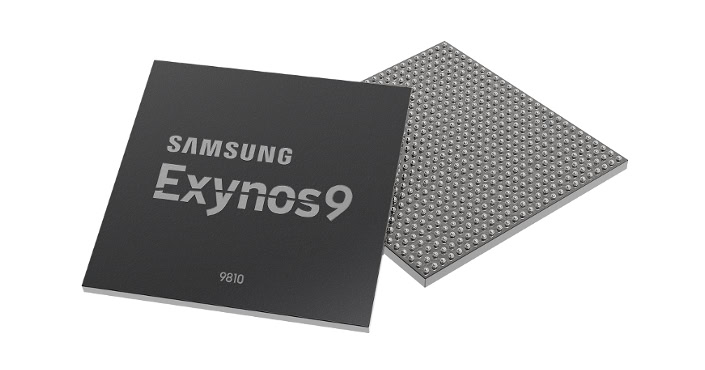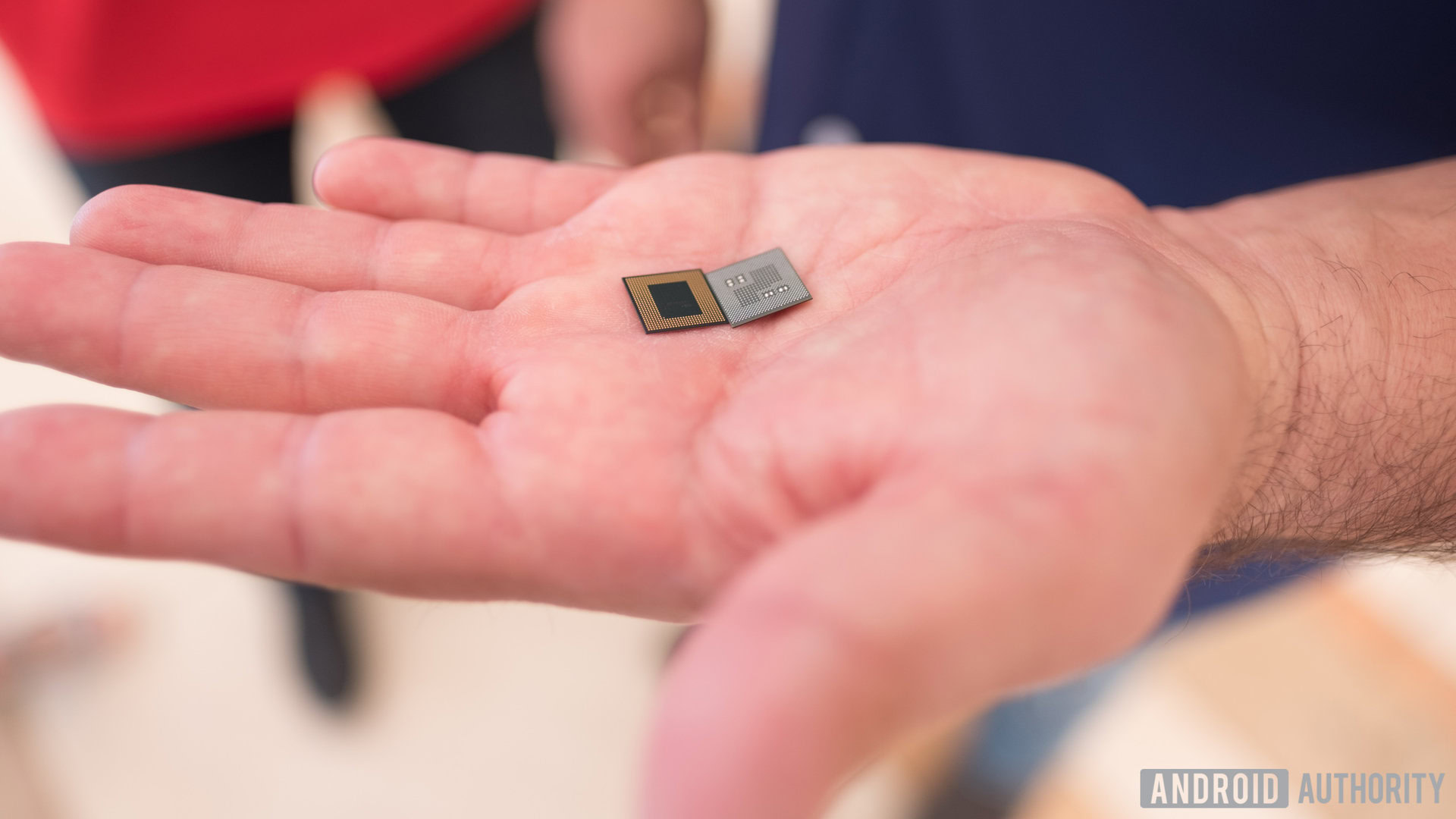Affiliate links on Android Authority may earn us a commission. Learn more.
Samsung Exynos 9810 promises 2x performance boost and enhanced AI

- Third generation custom CPU core clocked at 2.9 GHz
- Performance boosts of 2x for single-core, 40 percent multi-core, and 20 percent for graphics
- Also includes improved AI processing, 1.2 Gbps LTE, and 120 fps 4K video recording
Right on schedule, Samsung has unveiled lots of additional information about its next generation Exynos 9810 mobile application processor. The chipset is promising some impressive sounding performance improvements and has also been optimized for increasingly common machine learning or “AI” workloads. Let’s dive right in.
The Exynos 9810 is powered by four of the company’s third generation custom CPU cores clocked at 2.9 GHz. These are paired up with four other cores optimized for energy efficiency – Arm’s latest Cortex-A55 – clocked at 1.9 GHz. Samsung hasn’t detailed much about its latest architecture revision, but has mentioned that the CPU has a wider pipeline and improved cache memory, which should lead to some notable performance improvements. The latter point also suggests that we are looking at a design that resembles Arm’s cutting edge DynamIQ cluster configuration, which introduced the option of a shared L3 cache between cores and a private L2 cache for each core. However, it’s unlikely that Samsung is implementing Arm’s reference design if it’s still using an architecture license for its M3 core. Instead the company may have developed another in-house interconnect system or a hybrid design with separate clusters.
Samsung is boldly claiming that the M3 offers a two-fold single-core performance increase over the M2.
In terms of performance improvements, Samsung is boldly claiming that the M3 offers a two-fold single-core performance increase over the M2. That’s a significantly larger generational leap than any other recent SoC and one that could accelerate its performance towards Apple’s latest mobile chip. Multi-core performance is also said to improve by around 40 percent compared with last year’s Exynos 8895.

So how does Samsung get to the 2x single-core performance boost, and can this be sustained? We don’t exactly know, but by combining the architectural improvements, new L2 and L3 cache, clock speed boosts, and clock boosting that Samsung’s dubs its Janus Engine, Samsung can perhaps arrive at a 2x figure for some workloads. However average performance improvements may be more muted.
On the GPU side, Samsung has opted for Arm’s latest Mali-G72 technology. Interestingly, the core count has dropped from 20 to 18 with the Exynos 9810. However the clock speed has seen a significant boost as a result, up from 546 MHz to somewhere in the 700 MHz region, according to AnandTech. Overall, graphics performance should see a boost of around 20 percent. Conservative compared to the CPU overhaul, but still a welcome improvement.

As predicted, the Exynos 9810 is being manufactured using Samsung’s latest 10nm LPP FinFET technology. Moving to this process offers Samsung the opportunity to boost performance by around 10 percent over the previous generation, or save approximately 15 percent more power. We’ll have to wait a little longer before seeing a 7nm chip from the company.
Just like its competitors Apple, Qualcomm, and HUAWEI’s Kirin, Samsung has also worked in some dedicated machine learning hardware for AI. Although the company’s certainly doesn’t market this technology as vehemently. Samsung notes that the Exynos 9810 introduces “sophisticated features to enhance user experiences with neural network-based deep learning”, which appears to utilize both hardware and software to speed up these workloads. Samsung hasn’t divulged anything more specific, but it sounds like it’s taking a similar approach to the Exynos 8895, which packed in a Vision Processing Unit (VPU) used specifically for analyzing data taken from the phone’s camera. This enables the company to support image recognition, depth sensing, and 3D hybrid face detection efficiently, but support for third party applications might have to rely on the CPU/GPU, as there’s no mention of an SDK.
In addition to the performance improvements, the Exynos 9810 packs in a 1.2 Gbps LTE modem – a Category 18 LTE part with support for 6x carrier aggregation, 4×4 MIMO, 256-QAM, and eLAA technology. Samsung has also included a dedicated security processing unit to safeguard personal data, such as biometric details. There’s also a new dedicated image processing unit and multi-format codec that enables up to 120 fps 4K video recording and playback, 10-bit HVEC and VP9 support, and improved camera post-processing for low light and noise reduction.

Samsung’s Exynos 9810 represents a major revision to the company’s mobile application processor lineup, embracing the latest enhancements from Arm while continuing to push the envelope with its own in-house technologies. If the performance promises turn out to be accurate by the time the chip arrives in real products, Samsung’s handsets could well be the fastest in the Android ecosystem and may even give Apple a run for its money in single-core benchmarks. That aside, customers are also receiving a more efficient processing package, cutting edge media features, and support for ever more common AI applications too. The 9810 appears to tick all the right boxes.
The Exynos 9 Series 9810 is currently in mass production and is expected to power the flagship Samsung Galaxy S9, which is set to be unveiled in the coming months.